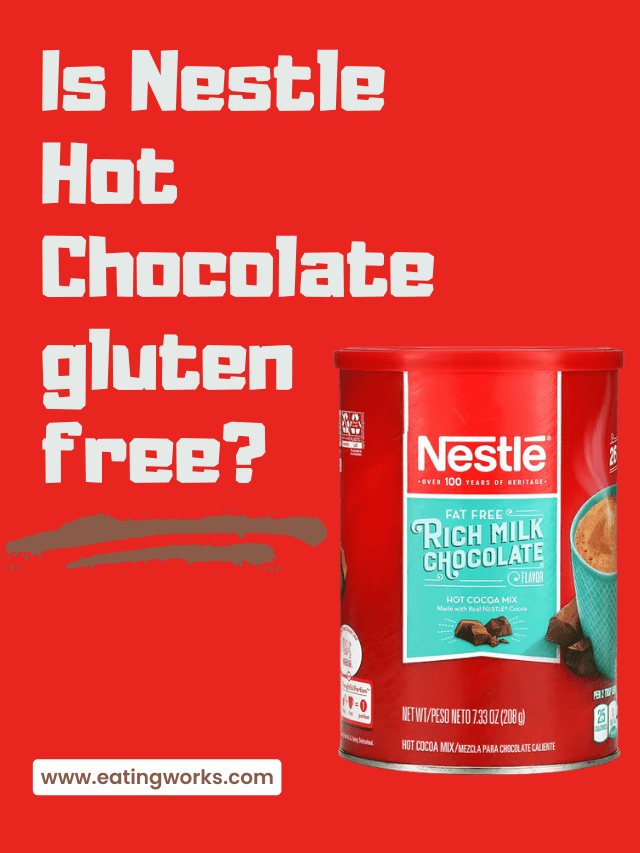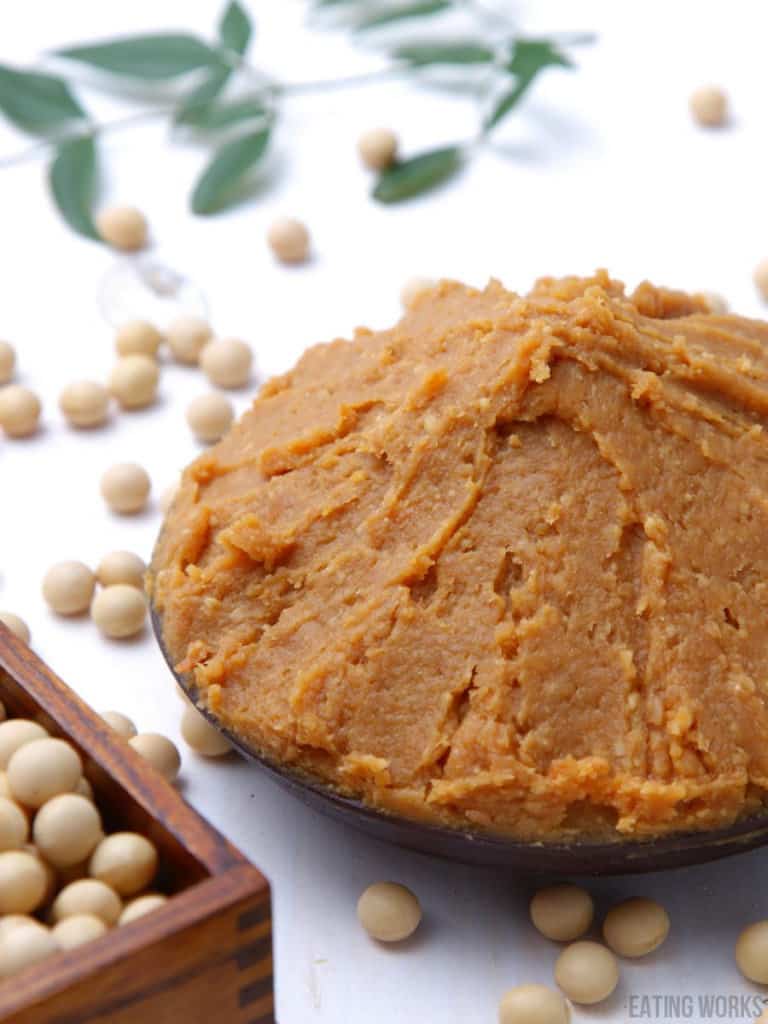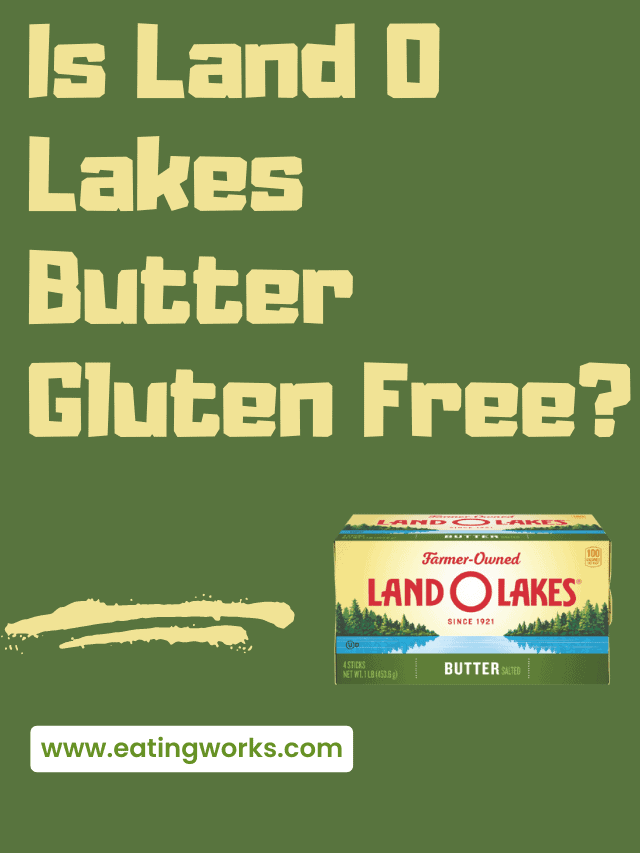Best Guide to Buying, Identifying & Making Gluten Free Tortillas
The need for Gluten Free Tortillas is undeniable! Most people eat tortillas without thinking about it.
Those of us on a gluten free diet have to be careful since it’s hard to tell whether a tortilla is gluten free or not. If you’re on a gluten free diet there is no reason why you shouldn’t be able to enjoy tortillas like everyone else.
After reading this guide you’ll know exactly which kind of tortillas are gluten free, the best brands to buy and how to make them at home.
What Are Tortillas Anyway?
A tortilla is a flat circular pancake made from flour or cornmeal. They’re typically served with a savory filling or cut into wedges and fried. Tortillas are essentially used the same way bread is.
This thin, flappy, round and bread-like ingredient is popular in Spanish cooking throughout Spain and South America. Americans love tortillas too, they’re served in restaurants as starters with dip, or filled with vegetables or meat as an entree. Mexican restaurants typically serve tortillas. Although healthy cafes always have tortillas on the menu as a healthy alternative to bread.
What Are Tortillas Made Out Of?
There are two main types of tortillas:
- Corn Tortillas.
- Flour Tortillas.
There are also tortillas that are made from a combination of flour and corn meal. Untraditional tortillas are made from coconut meat, vegetables and nut flours.
Corn Tortillas
Corn tortillas are typically made of corn kernels that have been prepared by a process that they call nixtamalization. In short, nixtamalization is a process where corn kernels are soaked in an alkaline solution (typically limewater), washed, and hulled. Nixtamalization makes the corn easier to grind into flour so that it can be used to make tortillas! Nixtamalization also increases the aroma, flavor and digestibility of the corn and reduces mycotoxins.
Nixtamalization sounds commercial and scary but it’s not! It’s a safe traditional technique that dates back 1000’s of years.
You can’t make corn tortillas from cornmeal that has been untreated or else the tortillas will rip. All good corn tortillas are made with nixtamalized corn, water and salt. These simple ingredients are combined to form a dough which is then flattened and turned into a pancake.
Flour Tortillas
Flour tortillas are typically made with all purpose flour, salt, lard and water. Since most flour tortillas are made with all purpose flour they’re usually NOT gluten free. However, flour tortillas can be made successfully with many different types of flour like gluten free all purpose flour, cassava flour, coconut flour and more!
Spanish Tortillas
Spanish tortillas are totally different, they’re typically egg omelette made with potatoes. So a Spanish Tortilla is just a fancy name for a Spanish potato omelette.
Combination Tortillas
Some tortillas are made with a combination of cornmeal and flour. This type of tortilla is especially tricky because you need to make sure that the flour used is gluten free.
Flavored Tortillas
Flavored tortillas are just like regular corn/flour tortillas that have some sort of flavor added to them. The most popular flavored tortilla I can think of is a spinach tortilla. Flavored tortillas are often marketed as wraps. Wraps and tortillas are essentially the same thing.
Spinach tortillas are misleading because people think they’re healthier because they’re green. But spinach wraps are mostly made up of all purpose flour and a tiny bit of spinach.
Are Most Tortillas Gluten Free?
Generally speaking tortillas that are made from corn are gluten free since corn is a vegetable and therefore doesn’t contain any wheat. However, tortillas made from grains likely have gluten in them. Unless a gluten free flour mix was used.

It is hard to tell which tortillas are gluten free and which aren’t. Below you’ll find a list of ingredients used to make gluten free tortillas, best brands and ingredients to avoid.
While you can make gluten free tortillas at home, most people don’t have the time and opt for the convenience of store bought gluten free tortillas.
So I would say that half of tortillas are gluten free and the other half are not. This makes it especially tricky for celiacs to know whether or not tortillas are gluten free because the answer is always going to be, maybe.
The best way to find gluten free tortillas is to know how to identify the difference between gluten free and gluten containing tortillas.
Are Flour Tortillas Gluten Free?
Usually not but sometimes yes. It depends on what type of flour was used to make them. GF Tortillas need to either be made from corn, gluten free flour or vegetables. Typically tortillas that are both flour based and gluten free have been made from cassava flour, gluten free all purpose flour, coconut flour, oat flour or potato flour. They could also be made with a nut based flour like quinoa or almonds.
Are Corn Tortillas Gluten Free?
Yes! Since corn is a naturally gluten free and most corn tortillas are made with 100% cornmeal it’s safe to assume that 100% corn tortillas are gluten free. Don’t forget to check the package to make sure that the corn tortillas are only made with corn and haven’t been blended with another type of gluten containing flour. Just to be safe.
Can Celiacs Eat Tortillas?
Celiacs can eat gluten free tortillas. In greater detail this means that celiacs can eat tortillas that are made from the following ingredients:
- Cornmeal
- Gluten Free All Purpose Flour
- Coconut Flour
- Coconut Meat
- Oat Flour
- Cassava Flour
- Quinoa Flour
- Almond Flour
- Dehydrated Vegetables
- Flax Meal
- Rice Flour
- Tapioca Flour
- Teff Flour
- Soybean Flower
- Potato Starch
- Vegetable Starch
While this is a long list of ingredients I’m sure there are even more. Always read nutritional labels or make sure that the package says gluten free. If you’re at a restaurant and the staff doesn’t know if the tortillas are gluten free or not, ask to see the package. Most restaurant staff have a basic knowledge of gluten restrictions but not a detailed one. If you are sensitive to trace amounts ASK for a complete list of ingredients.
What Are the Best Store Bought Gluten Free Tortillas
The longest list of gluten free tortilla brands is on toufayan. My list only compromises of the healthiest gluten free tortillas.
Remember, just because something’s labeled as gluten free doesn’t necessarily make it healthy. Gluten isn’t the only culprit out there. There are plenty of gluten free ingredients that are harmful.
10 Healthiest Gluten Free Tortillas Brands!
Siete Brand
Siete is a great brand that was created to help people with dietary restrictions. They have different types of gluten free tortillas that I love. Siete is a little expensive but the quality of their products are top.
Siete Grain Free Tortillas
Ingredients: Water, Cassava Flour, Tapioca Flour, Avocado Oil, Coconut Flour, Arrowroot Flour, Apple Cider Vinegar, Coconut Sugar, Sea Salt, Yeast
Shelf Life & Storage : Siete Grain Free Tortillas last for up to 21 days in the fridge. You should eat them within 7 days after opening the package. They will last for up to 3 months in the freezer.
How to Use: The best way to warm up these tortillas is to place them in the oven at 400 degrees for 2-3 minutes. Warming will make these tortillas more flexible.
Siete Cassava and Coconut Tortillas

These tortillas are especially flexible and don’t rip!
Ingredients: Cassava Flour, Water, Coconut Flour, Coconut Oil, Apple Cider Vinegar, Sea Salt, Xanthan Gum.
Shelf Life and Storage: These will last 21 days but must be eaten within 7 days once the package has been opened. They will last for up to 3 months in the freezer.
How to Use: The best way to warm up these tortillas is to place them in the oven at 400 degrees for 2-3 minutes. Warming will make these tortillas more flexible.
Siete Almond Flour Tortillas
Ingredients: Almond Flour, Tapioca Flour, Water, Sea Salt, Xanthan gum.
Shelf Life and Storage: These will last 21 days but must be consumed within 7 days once the package has been opened. They will last for up to 3 months in the freezer.
How to Use: The best way to warm up these tortillas is to place them in the oven at 400 degrees for 2-3 minutes. Warming will make these tortillas more flexible.
Chickpea Flour Tortillas by Siete

Ingredients: Chickpea Flour, Cassava Flour, Water, Tapioca Flour, Olive Oil, Apple Cider Vinegar, Sea Salt, Guar Gum.
Shelf Life and Storage: These will last 21 days but must be consumed within 7 days once the package has been opened. They will last for up to 3 months in the freezer.
Caulipower Tortillas

Ingredients: Cauliflower, Non-GMO Corn Masa, Yeast, Salt, Baking Powder (D-Gluconic Acid, Baking Soda), Guar Gum, Xanthan Gum.
Storage and Uses: According to the Caulipower website this is how you should prepare a Caulipower tortilla on the stove or microwave and how long they will last!
Skillet (recommended)
- Remove tortilla from pouch and place remaining tortillas back in the freezer or refrigerator
- Place tortilla in the center of the skillet
- Heat on high for 30 to 45 seconds
- Use spatula or tongs to flip the tortilla and heat on high for 30 to 45 seconds, or until desired crispness is reached
- Carefully remove tortilla from skillet with spatula or tongs
Microwave | Single Tortilla
- Remove tortilla from pouch and place remaining tortillas back in the freezer or refrigerator
- Wrap tortilla in a damp paper towel
- Microwave on high for 30 to 35 seconds on a microwave-safe plate
Microwave | Multiple Tortillas
- Remove 2 to 5 tortillas from pouch and place remaining tortillas back in the freezer or refrigerator
- Wrap tortilla in a dry paper towel
- Microwave on high on a microwave-safe plate for:
- 2 tortillas: 35 to 40 seconds
- 3 tortillas: 40 to 45 seconds
- 4 tortillas: 45 to 50 seconds
- 5 tortillas: 50 to 55 seconds
Heating appliances may vary. Adjust cook time as necessary. Tortillas are done when warmed to your liking.
Caution: Tortilla will be hot. Cool before eating.
IF PURCHASED FROZEN, STORE IN REFRIGERATOR FOR UP TO 4 WEEKS.
Vermont Tortilla Company Stone Ground Corn Tortillas

Ingredients: corn, slaked lime, and water.
Storage and Use: Our tortillas freeze exceptionally well and should be frozen or consumed on receipt. They can be heated up on a skillet for 1 minute on each side or toasted in the oven at 400 degrees F for 2-3 minutes.
I love these tortillas because they have zero preservatives and are made in small batches with nixtamalization treated cornmeal so they’re soft, pliable and naturally gluten free!
NuCo Organic Coconut Wraps

Ingredients: 3 simple organic ingredients: coconut meat, coconut water, and unrefined virgin coconut oil.
Storage and Use: According to their website, there is no need to refrigerate, freeze, or heat your NUCO Wraps, allowing you to enjoy these wraps wherever and whenever. Making these a great gluten free tortilla to bring on road trips or packed lunches for work and school.
Julian Bakery Paleo Thin Traditional Wraps
Ingredients: Organic Coconut Flour, Organic Digestive Resistant Prebiotic Tapioca Fiber, Organic Flax Meal, Organic Ground Chia, Organic Tapioca Flour, Filtered Water, Organic Sunflower Butter, Organic Sunflower Oil, Organic Apple Cider Vinegar, Organic Psyllium, Citric Acid (From Citrus), Natural Flavor, Sea Salt.
Storage and Uses: These tortillas are great since they have a shelf-life of ten months. There is no need to refrigerate or freeze these “tortillas” at all. You may enjoy our wraps after storing in near room temperatures.
Spinach Raw Wraps By Green Leaf Foods
Ingredients: Apple, spinach, onion, quinoa, psyllium.
Storage and Uses: These wraps can be eaten without being heated up so they maintain their raw enzymes and vitamins but if you prefer them warm, feel free to heat them gently in an oven at 200 degrees. Don’t toast them or they’ll loose their texture and flavor.
Sunfood Superfoods Raw Vegan Coconut Wraps

Ingredients: Raw Organic Coconut Meat, Raw Organic Coconut Water, Raw Organic Unrefined Virgin Coconut Oil
Storage and Use: Place in a sealed container and store at room temperature. Do not refrigerate or freeze. Free of added salt, synthetic flavors, and preservatives, these wraps can last nine months without the need for refrigeration or freezing.
Ingredients To Avoid when Buying Gluten Free Tortillas
When shopping for GF tortillas you should always avoid regular all purpose flour. Some other sneaky ingredients that you should not only avoid when tortilla shopping but ALWAYS look out for include:
- Wheat (bran, germ and starch)
- Malt (since it’s made from barley)
- Cracker Meal
- Soy Sauce
- Kinkel
- Vital Gluten
- Wheatgerm
- Sulfosccinate
- Seitan
- Rusk
- Teriyaki Sauce
- Durum
- Semolina
- Einkorn
- Emmer
- Farina triticale
- Farro or faro (spelt)
- Graham flour
- Hydrolyzed wheat protein
- Modified wheat starch
What Are The Healthiest Kinds Of Gluten Free Tortillas
The healthiest kind of gluten free tortillas are the ones made with clean ingredients without preservatives. Like 100% corn tortillas and GF tortillas made from cassava flour, quinoa flour, almond flour, vegetable starch, coconut flour and coconut meat.
Which kind of Gluten Free Tortillas Don’t Fall Apart When You Fold Them?
There’s nothing more frustrating than a tortilla that rips. I can’t tell you how many times I’ve ordered gluten free tacos from a raw restaurant. When I pick up the taco the tortilla rips down the middle and the filling falls out. These really aren’t tortillas, They’re cookies. Any kind of dish made with a tortilla that rips is basically a salad served on top of a circle. In my experience, the best kind of gluten free tortilla that doesn’t break are:
- Gluten free all purpose flour tortillas
- Corn tortillas
- Cassava tortillas. (Cassava tortillas have to be warmed up slightly before they are folded or else they’ll rip as well).
Gluten Free Tortilla Recipes
While there are plenty of GF tortillas on the market, you can get ambitious make your own! Tortillas aren’t as hard to make as you may have thought. They only contain a few steps and ingredients. If you would like to try it check out these recipes!
All corn tortillas are gluten free unless they have been mixed with wheat. Assuming that we are talking about 100% corn tortillas then yes they are always gluten free!
It depends on what type of flour was used to make them. Tortillas need to either be made from corn or gluten free flour. Typically tortillas that are both flour based and gluten free have been made from cassava flour, gluten free all purpose flour, coconut flour, oat flour or potato flour. They could also be made with a nut based flour like quinoa or almonds.
Celiacs can eat gluten free tortillas. In greater detail this means that celiacs can eat tortillas that are made with 100% cornmeal, gluten-free flour, or almond flour. This means that they can enjoy tortillas made from gluten free flour, corn and vegetable starch.






